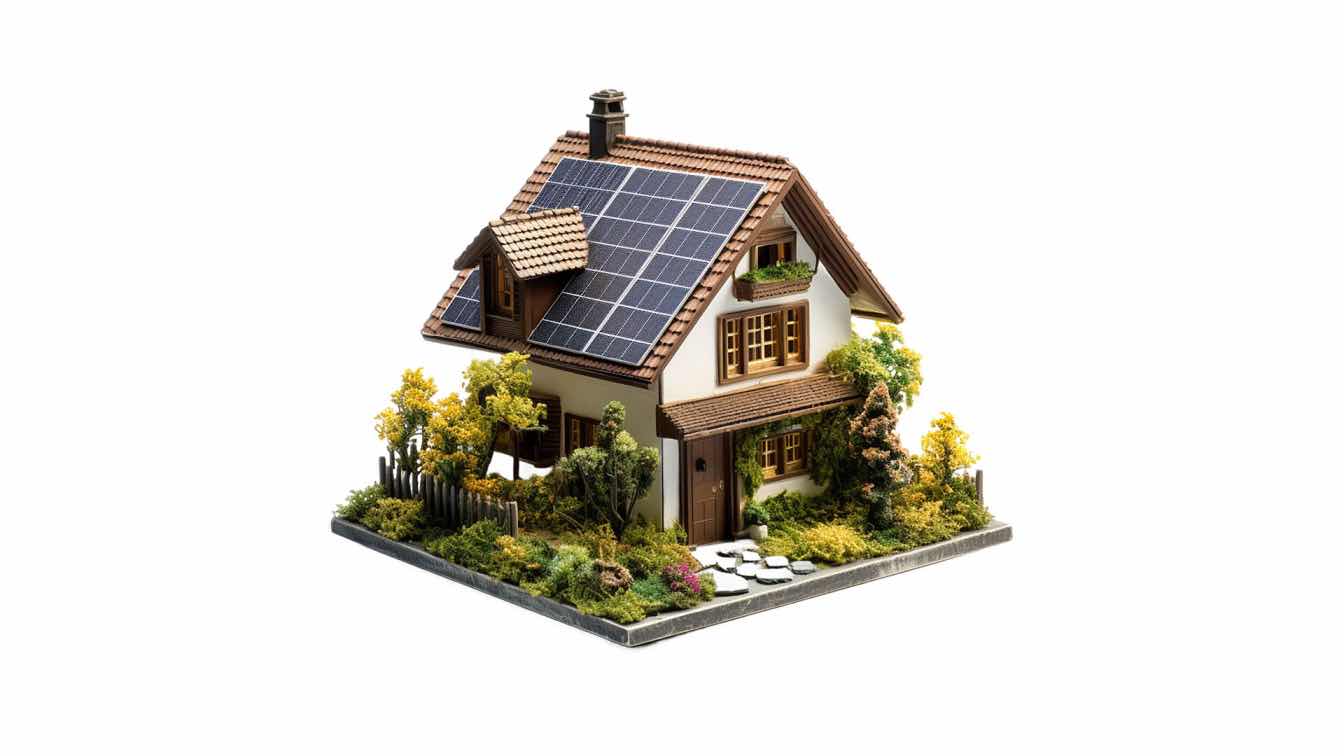Are you considering turning your home into a beacon of sustainability and cost-efficiency? There's never been a better time to let the sun in on your energy bills! With the sun shining brighter on the solar energy sector, homeowners find harnessing this clean, inexhaustible resource increasingly appealing. From tapping into generous financial incentives and understanding the significant long-term savings to appreciating the positive environmental impact and keeping pace with the latest advancements in solar technology, the benefits are as clear as daylight. Moreover, navigating the landscape of tax credits and rebates has always been challenging, making it an opportune moment to boost your home's value and contribute to a greener planet. Ready to embark on a luminous journey towards sustainability? Let's dive into the sunny side of energy independence and explore how to get started with solar energy, illuminating a path to a brighter, more sustainable future.
Maximizing Financial Incentives for Solar Energy Installation
Experts at Sun Valley Solar Solutions emphasize that with the current financial incentives available, there has never been a better time to invest in solar energy for your home. Experts agree that taking advantage of government rebates, tax credits, and solar renewable energy certificates (SRECs) can significantly reduce the overall cost of solar panel installation. These incentives are designed not only to make solar energy more accessible to homeowners but also to encourage the shift towards a more sustainable and renewable energy source. Act swiftly is crucial, as many of these incentives have an expiration date or decrease in value over time. By consulting with a solar energy specialist, homeowners can navigate these opportunities effectively, ensuring they maximize their financial benefits while contributing to environmental sustainability.
Understanding the Long-Term Savings of Solar Power
Investing in solar energy is a step towards a sustainable future and a financially savvy decision for homeowners. The long-term savings on electricity bills are a primary benefit, with many users reporting significant reductions within the first few years of installation.
Beyond the immediate financial savings, solar power also increases property values. Homes equipped with solar energy systems have been found to sell at a premium compared to those without. According to a Lawrence Berkeley National Laboratory study, homes with solar panels sell for approximately 4.1% more than similar homes without solar energy. This premium not only makes solar investment financially appealing but also enhances the marketability of the property. Furthermore, solar energy systems are designed to last for 25 to 30 years, ensuring decades of energy savings and environmental benefits. By investing in solar energy, homeowners secure their financial future and contribute to a sustainable planet.
The Environmental Impact: How Solar Reduces Your Carbon Footprint
Embracing solar energy for your home signifies a step towards sustainable living and plays a crucial role in reducing your carbon footprint. Solar panels convert sunlight into electricity without emitting greenhouse gases, significantly contributing to climate change. By shifting to solar, homeowners directly decrease the demand for fossil fuels, the primary source of CO2 emissions globally. This transition supports the global effort to combat climate change and sets a precedent for an eco-friendly lifestyle, encouraging communities to follow suit.
The benefits of solar energy extend beyond environmental preservation. Economically, it offers homeowners relief from fluctuating energy prices, ensuring a steady and predictable cost for electricity. Moreover, the surplus energy generated can often be sold back to the grid, providing an additional income stream or offsetting the cost of energy consumed. The conclusion is clear: investing in solar energy is not just an environmentally conscious decision but also a financially savvy one. By reducing reliance on non-renewable energy sources, we contribute to a healthier planet and a sustainable future for future generations.
Advancements in Solar Technology: More Efficient and Affordable Than Ever
The landscape of solar technology has undergone a significant transformation, making it more efficient and affordable for homeowners than ever before. In recent years, there has been a dramatic improvement in the efficiency of photovoltaic (PV) cells, the core component of solar panels. For instance, the average efficiency of solar panels has increased from about 15% a decade ago to more than 22% today for the leading products. This leap in efficiency means that modern solar panels can generate more electricity from the same amount of sunlight, reducing the number of panels homeowners need to meet their energy needs. Additionally, the cost of solar panels has plummeted by more than 70% over the last decade, according to the Solar Energy Industries Association. This combination of higher efficiency and lower costs makes the investment in solar energy more compelling than ever.
Navigating Solar Energy Tax Credits and Rebates
Understanding the intricacies of solar energy tax credits and rebates is crucial for homeowners transitioning to renewable energy. The federal government and many state governments offer significant financial incentives to reduce the initial cost of solar panel installation. These incentives are designed not only to make solar energy more accessible but also to encourage its adoption. For instance, the Investment Tax Credit (ITC), which allows homeowners to deduct a portion of their solar installation costs from their federal taxes, has been pivotal in the solar industry's growth. Additionally, various states offer additional rebates and tax credits, further decreasing upfront costs. It's essential to research and understand the specific incentives available in your area, as they can significantly impact your solar energy system's overall investment and payback period. By taking advantage of these financial incentives, homeowners can enjoy lower utility bills, contribute to environmental sustainability, and increase their property's value, making now an opportune time to invest in solar energy.
Increasing Your Home's Value with Solar Energy
Integrating solar energy into your home is not just an eco-friendly move; it's a strategic investment that can significantly boost your property's market value. Studies have shown that homes equipped with solar power systems enjoy a marked increase in resale value compared to non-solar homes. This uptick in property value is attributed to the growing consumer awareness and demand for energy-efficient, sustainable living solutions. As utility costs continue to rise, the appeal of homes offering lower energy bills through solar panels becomes increasingly attractive to potential buyers, ensuring that your investment today will pay dividends.
Moreover, installing solar panels can make your home stand out in the competitive real estate market. Potential buyers are often willing to pay a premium for homes that promise reduced utility costs and a smaller carbon footprint. This is especially true in regions where environmental consciousness is high. Adding solar energy systems to your property contributes to a greener planet and a more robust and appealing real estate portfolio. In conclusion, leveraging solar energy to increase your home's value is a wise and forward-thinking decision that aligns with current trends in environmental sustainability and real estate investment.
How to Get Started with Solar Energy: A Step-by-Step Guide
Diving into the solar energy market can initially seem daunting, but with a structured approach, homeowners can smoothly transition to renewable energy, reaping environmental and financial benefits. The first step involves conducting a thorough assessment of your home's solar potential, which can be done through various online tools or by consulting with a professional. This is crucial in understanding solar panels' feasibility and expected output. Following this, obtaining multiple quotes from reputable solar installation companies is essential to ensure competitive pricing and quality service. It's also important to understand the available financing options, including solar loans, leases, and power purchase agreements (PPAs), each with benefits and considerations.
Additionally, researching local incentives and federal tax credits can significantly reduce the overall cost. Choosing the right equipment is another critical step, where efficiency, warranty, and manufacturer reputation come into play. Finally, proper installation and regular maintenance will guarantee optimal performance and longevity of your solar energy system. Below is a comparison table showcasing the average costs and savings associated with solar panel installation in different states, highlighting the importance of location in your solar investment decision.





